第163章 CHAPTER XXV(3)
And as she sat there alone she thought this unity of music drew her closer to the desert than she had ever been before, and drew Androvsky with her, despite his great reserve. In the heart of the desert he would surely let her see at last fully into his heart. When he came back in the night from the priest he would speak. She was waiting for that.
The moon was mounting. Its light grew stronger. She looked across the sands and saw fires in the city, and suddenly she said to herself, "This is the vision of the sand-diviner realised in my life. He saw me as I am now, in this place." And she remembered the scene in the garden, the crouching figure, the extended arms, the thin fingers tracing swift patterns in the sand, the murmuring voice.
To-night she felt deeply expectant, but almost sad, encompassed by the mystery that hangs in clouds about human life and human relations.
What could be that great joy of which the Diviner had spoken? A woman's great joy that starred the desert with flowers and made the dry places run with sweet waters. What could it be?
Suddenly she felt again the oppression of spirit she had been momentarily conscious of in the afternoon. It was like a load descending upon her, and, almost instantly, communicated itself to her body. She was conscious of a sensation of unusual weariness, uneasiness, even dread, then again of an intensity of life that startled her. This intensity remained, grew in her. It was as if the principle of life, like a fluid, were being poured into her out of the vials of God, as if the little cup that was all she had were too small to contain the precious liquid. That seemed to her to be the cause of the pain of which she was conscious. She was being given more than she felt herself capable of possessing. She got up from her chair, unable to remain still. The movement, slight though it was, seemed to remove a veil of darkness that had hung over her and to let in upon her a flood of light. She caught hold of the canvas of the tent. For a moment she felt weak as a child, then strong as an Amazon. And the sense of strength remained, grew. She walked out upon the sand in the direction by which Androvsky would return. The fires in the city and the camps were to her as illuminations for a festival. The music was the music of a great rejoicing. The vast expanse of the desert, wintry white under the moon, dotted with the fires of the nomads, blossomed as the rose. After a few moments she stopped. She was on the crest of a sand-bank, and could see below her the faint track in the sand which wound to the city gate. By this track Androvsky would surely return.
From a long distance she would be able to see him, a moving darkness upon the white. She was near to the city now, and could hear voices coming to her from behind its rugged walls, voices of men singing, and calling one to another, the twang of plucked instruments, the click of negroes' castanets. The city was full of joy as the desert was full of joy. The glory of life rushed upon her like a flood of gold, that gold of the sun in which thousands of tiny things are dancing. And she was given the power of giving life, of adding to the sum of glory. She looked out over the sands and saw a moving blot upon them coming slowly towards her, very slowly. It was impossible at this distance to see who it was, but she felt that it was her husband. For a moment she thought of going down to meet him, but she did not move. The new knowledge that had come to her made her, just then, feel shy even of him, as if he must come to her, as if she could make no advance towards him.